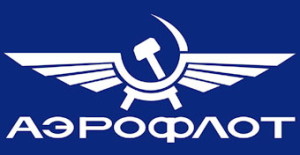 Aeroflot highlights efforts of the Russian service industry to improve customer service. Is paying people to smile, speak softly and kneel a good thing?
Aeroflot highlights efforts of the Russian service industry to improve customer service. Is paying people to smile, speak softly and kneel a good thing?
An article appeared yesterday (Saturday, Nov. 2, 2013) in the The New York Times reporting on Aeroflot’s successful efforts to improve service on its flights—‘Russian Service, and With Please and Thank You.’ Reporter Andrew E. Kramer sees the extensive training now given to flight attendants for the Russian airline as part of a “broad and transformative trend in the Russian service industry brought about by the rising demands of middle-class consumers.” On its way out, apparently, is the stereotypical gruff and taciturn response of the Russian service worker who has to actually provide a service. Is this a good thing? I wonder.
For Aeroflot these efforts are paying off. The article cites a recent survey: “Skytrax, a company in Britain that surveys passengers after flights, found that Aeroflot had the best service of any airline in Eastern Europe this year.”
This put me in mind of my own experiences with Aeroflot over the years, and of the Cold War-rooted perception of Russian service culture by Americans. Ingrained in my head is the joke, supposedly told by workers in the Soviet Union, to the effect that things were fair because, ‘we pretend to work, and they pretend to pay us.’ Now that capitalism has arrived, workers are, presumably, expected to work, as their employers are expected to pay.
I could see this transformation myself when I visited St. Petersburg and Moscow in 2012, and I compared encounters with Russians then with those of my first visit in 1992. Certainly there were many more smiles and offers of help at restaurants and stores last year than twenty years previously. I did, though, consider the difference that in 2012 there were a fair number of restaurants and stores that actually had products and services to sell, whereas in 1992 the economy, such as it was, was falling apart. At that time there was often barely enough for many to get by with. And comparing the Russia at that time with the modern, more Western Russia of today, I am not so sure this transformation is such a good thing. While before the arrival of full-blown liberal market forces there was much less an effort to please the “customer,” in 1992 I was struck by the number of people who went out of their way to help make my stay comfortable and enjoyable. Significantly, this was not because they wanted to sell me anything, but because it was the right thing to do; it came from their values of community and national pride. It seemed to me at that time that they cared about their friends and neighbors, and worried that a stranger who spoke another language might need some help. Russians today can be trained to act like a Nordstrom employee, but does that mean that Russians are friendlier? I guess what disturbs me about this discussion is that it implies that friendliness has become a commodity; one’s warmth, smile and soothing tones are products with value in the labor market. Why that bothers me is that it points to a situation in which all the values of a society are reduced to monetary value.
Clearly I have problems with capitalism. This does not make me Marxist, or even anti-capitalist, but I yearn for a capitialism that is not so naked and all encompassing. I wonder if it is possible to insulate certain things from market forces and commodification, things like art and love.
And back to improvements to air service, there is one area where, in 1992, Aeroflot excelled: food provided on board. During a flight from Moscow to Tashkent my tray was folded down and a bag plopped onto it, without explanation. I opened it gingerly to find a hard-boiled egg, a piece of bread, a piece of cheese and a cooked chicken leg. I was, at first, shocked, but after eating it and finding it fairly fresh, the more I thought about it the more I realized that it was the best food ever given to me on an air flight. To this day, it is the best in-flight meal I have ever been served.
© 2013, John Dougherty. All rights reserved
